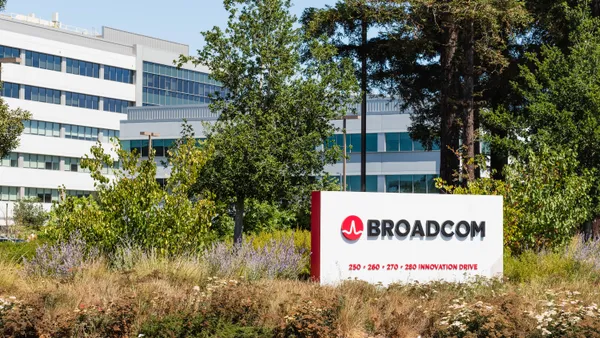Dive Brief:
- Investors say a new U.S. measure raising the costs of sponsoring workers under H-1B and L1 visas could cut the profit margins of Indian IT firms and cause them to raise client fees.
- The National Association of Software and Service Companies, an Indian IT industry lobby group, estimates the change will cost Indian IT firms an extra $400 million a year.
- The measure passed by the U.S. Congress last month doubled the cost of sponsoring workers' H-1B and L1 visas.
Dive Insight:
The United States is the top market for Indian IT outsourcing firms such as Tata Consultancy Services and Infosys, generating about three-quarters of their revenue, which is estimated at about $150 billion per year.
Some argue that the higher fees demonstrate prejudice against the Indian firms.
"The higher fee is unjustified because it is designed to hurt India firms disproportionately," said R. Chandrasekhar, president of the National Association of Software and Service Companies.
But higher fees imposed by the U.S. would likely be passed along to the customers that use the consulting services, putting the firms in break-even status.
At the same time, shifting IT priorities may change the Indian outsourcing model anyway. Over the last year, several Indian outsourcing firms have altered their focus from routine technology infrastructure maintenance and software application projects to higher-margin digital and cloud computing services. That approach would mean they likely need to send fewer staff to client locations overseas, analysts said.
"These companies know that with digital services you can cut down the number of people that need to work out of client locations and that visa costs do not pose a long-term threat," said Aneesh Srivastava, chief investment officer at IDBI Federal Life Insurance.














